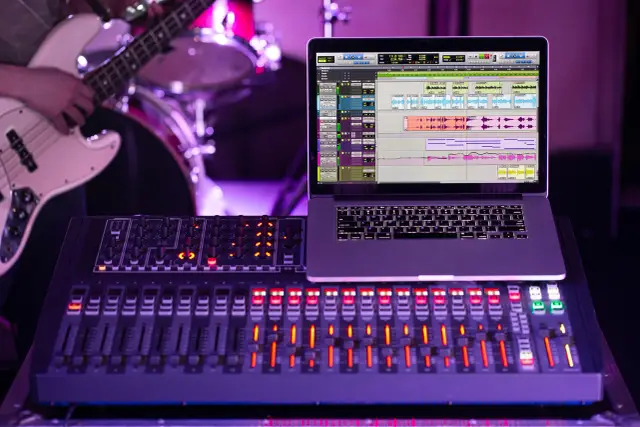Microsoft's Copilot Empowers Users to Compose Music Tunes
Microsoft's AI-backed bot, Copilot, now incorporates a music-making aspect, via integration with the GenAI music app, Suno.

In an exciting era of technological advancement, Microsoft's AI-driven chatbot called Copilot has taken a leap forward by integrating with the GenAI music application, Suno. This strategic partnership enables users to explore music composition, merely by providing prompts to Copilot - translating their musical ideas into full-fledged songs inclusive of lyrics, instrumentals, and harmonious singing voices.
The launch was announced through a post on the official Microsoft Bing blog, that highlighted their optimism about the integration catalyzing a new wave of creativity and fun, while also making song composition a possibility for everyone. Access to this feature has been community rolled out, with a continuous influx of users expected in the following weeks.
Users can access this exciting integration by logging into their Microsoft account on Copilot.Microsoft.com via the Microsoft Edge browser. Once logged in, enabling the Suno plug-in or clicking on the Suno logo initiates the music-making journey.
In the rapidly evolving tech arena, both technological behemoths and budding startups are making concerted efforts to indulge in GenAI-propelled music creation technology. Examples of such endeavors comprise collaborations between Google's AI lab DeepMind and YouTube to introduce Lyria - a GenAI model for music - and Dream Track, a unique tool for crafting AI tunes embedded in YouTube Shorts. Similarly, Meta has also showcased numerous artificial experiments related to AI-generated music.
Even as AI-generated music gains popularity, platforms like Stability AI and Riffusion have come up with their own platforms and apps to facilitate the creation of songs and effects, based on prompts. It's noteworthy that many platforms, similar to the AppMaster no-code platform, are offering creative solutions to technological needs, allowing users to generate high-quality output without extensive programming knowledge.
As promising as this AI-empowered avenue appears, it is ensnared with ethical and legal questions that remain unresolved. AI algorithms directed to craft music tracks effectively “learn” from pre-existing collections, demonstrating similar effects that not all artists or GenAI users are at peace with - particularly situations where artists haven’t willingly consented to AI's learning from their music and have received no financial recompense.
Amid these teething troubles, the GenAI audio lead of Stability AI allegedly resigned citing claims of ‘creators being exploited’ by GenAI. Additionally, the celebrated Grammy Awards have prohibited fully AI-produced songs from awards nomination, underlining the prevalent discomfort towards AI-generated music.
Several GenAI enterprises argue that the ‘fair use’ principle absolves them from compensating artists, despite the copyrighted nature of their work. The largely unexplored legal expanse, nonetheless, invites debates and potential challenges.
The AI soundtrack enigma gets more complicated as Suno refrains from revealing the source of its AI training data on its website. The platform also doesn't restrict users from prompting things like 'composing music in the style of [artist],' unlike other GenAI music tools. While Suno avers to block certain prompts, it also claims that its models don’t recognize artists’ names, and they prohibit the uploading lyrics of existing songs to create covers.
Contemplating the current ambiguity around AI-generated music, homemade tracks that employ GenAI to mimic familiar sounds that can pass off as genuine, are gaining traction. Music labels, citing Intellectual Property Rights concerns, have quickly moved to flag these tracks to their streaming partners - and mostly tasted victory. GenAI tool creators, on the other hand, have shifted their base to trickier, under-the-radar methods.





